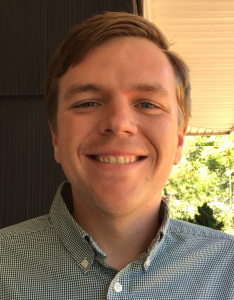LIIST staff therapist, John Mutziger, attended the 2019 AASECT Conference. So we decided to interview him about his experience.
What is AASECT?
AASECT is a culture of inclusion, empowerment, and compassion.

Having an organization that promotes a sexually happy world certainly lends itself to an environment that is inclusive, empowering, and compassionate! These are also characteristics that John possesses as an excellent therapist—it makes sense that he would gravitate to these aspects of AASECT.
What did you hope to learn at the AASECT conference this year?
Attending an AASECT conference is a wonderful experience. Sexuality professionals have an opportunity to teach others about a topic they are expert in, to learn from other professionals, to meet their idols, and to forge new professional relationships.
I hoped to gain new perspectives from experienced academics and clinical providers as well as learn new skills to help me grow as a counselor.
What were one or two powerful moments during the conference? When was your heart reached, or your mind changed?
My heart was reached as I learned more about bi-erasure (when an individual experiences feelings of invisibility due to their bisexual orientation). Feeling invisible, especially within the queer community, is a heartbreaking experience. It was powerful to learn that people within the largest sexual minority group experience feelings of invisibility. This resonated with me as a counselor because it provides me with an opportunity to validate and empower those who feel unappreciated by their peers, friends, or family.

My mind was most changed with regard to my perspective of minor-attracted persons. Admittedly, my initial reaction to the subject was negative and my mind began to open as the lecture moved forward. This subject resonated with me as a counselor because this paraphilia is marginalized by the mental health community due to the uncomfortable nature of pedophilia. Sexual health is a human right and access to help without fear of shame or stigma is inherent to that right.
As the director of LIIST does not have any training or expertise in working with minor-attracted indviduals, this is not an issue any of the therapists at LIIST currently work with. If you or someone you know is dealing with minor attractions as an adult, we can refer them to other therapists and organizations who might be able to help.
Who did you see or interact with during the conference that you really admire? Why do you admire them, and/or what knowledge did you gain from them?
I met a surrogate partner therapist while at the conference. I learned how surrogate partner therapy is a collaborative process, with the client, surrogate and sex therapist all working together with a treatment plan. I admired the surrogate partner therapist’s ability to facilitate deep and transformative connections with their clients.

Surrogate partner therapy exists in a legal grey area in NY State. In some places, this profound work is illegal. In some states, like California and Florida, there are professional organizations that have exceptionally high standards for surrogate partner therapists to achieve and maintain. Their work has often been crucial for the effectiveness of sex therapy throughout its relatively short history. Without surrogate partner therapists, sex therapy often fails to be effective, especially for individuals without a sexual partner.
What are one or two nuggets of new information or insight that you will use your practice immediately?
I immediately went back to the office prepared to discuss how sexual satisfaction is more than just feeling good about one’s sexual self, it’s about being sexually energized by connection.
The concept that healing does not mean that the damage never existed stuck with me. Instead of healing negating the damage, healing means that the damage no longer controls one’s life.
How can someone contact you to schedule an appointment?

I am part of an amazing team at The Long Island Institute of Sex Therapy. Thanks to conferences and other growth opportunities, our therapists are some of the best and brightest on the block. If you think I might be able to help you or your relationship, feel free to reach out to us. Our phone number is 516-690-6779, (you can even text us there!) and you can email us at Info@LISexTherapy.com. If you’re curious to about me, you can learn more at www.SexTherapyLongIsland.com/About-John